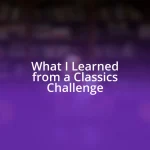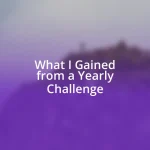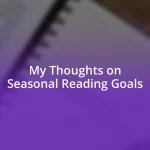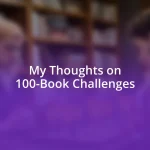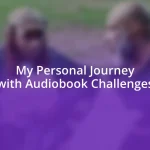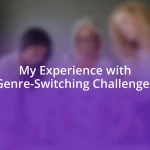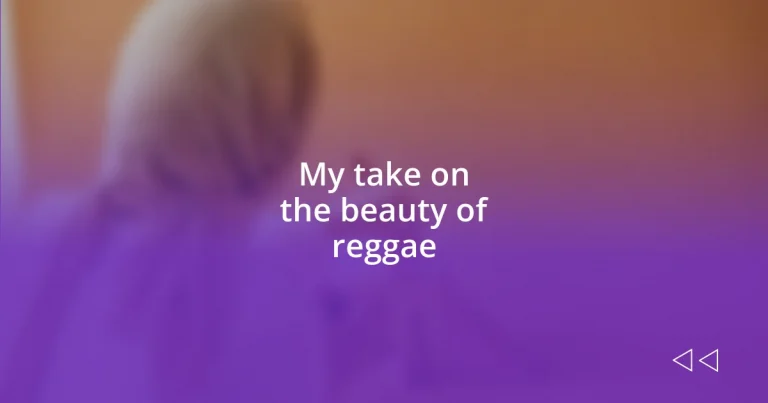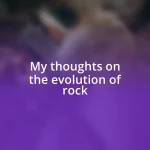Key takeaways:
- Reggae music originated in Jamaica in the late 1960s, blending influences from ska and rocksteady, and serves as a voice for social justice and cultural identity.
- Key elements of reggae include the one-drop beat, offbeat guitar strumming, and deep bass lines, which create a laid-back yet powerful sound that resonates with listeners.
- Reggae’s global reach is significant, uniting diverse cultures and continuing to inspire social movements, while its lyrical themes promote love, unity, and resilience.

Understanding reggae music’s roots
Reggae’s roots can be traced back to the vibrant cultural tapestry of Jamaica in the late 1960s, where various influences mingled to create a distinct sound. I remember the first time I heard a classic Bob Marley track; the rhythm felt infectious, yet I was fascinated by the deeper messages woven into the lyrics. Isn’t it amazing how a genre can encapsulate both the joy of life and the struggles of society?
The genre draws heavily from ska and rocksteady, which created a rhythmic foundation perfect for expressing both celebration and resistance. I often find myself reflecting on how these early styles mirrored the vibrant energy of Jamaican neighborhoods, where music served as a voice against oppression. Can you imagine the streets alive with sounds that reflected the highs and lows of life?
Furthermore, reggae music resonates deeply with themes of peace, love, and social justice, influenced by Rastafarian culture. I vividly recall hearing an elder explain how the music became a form of protest, an anthem for change in the face of adversity. This connection to cultural identity is particularly powerful, reminding me that music can be more than just entertainment; it can be a unifying force in community struggles.
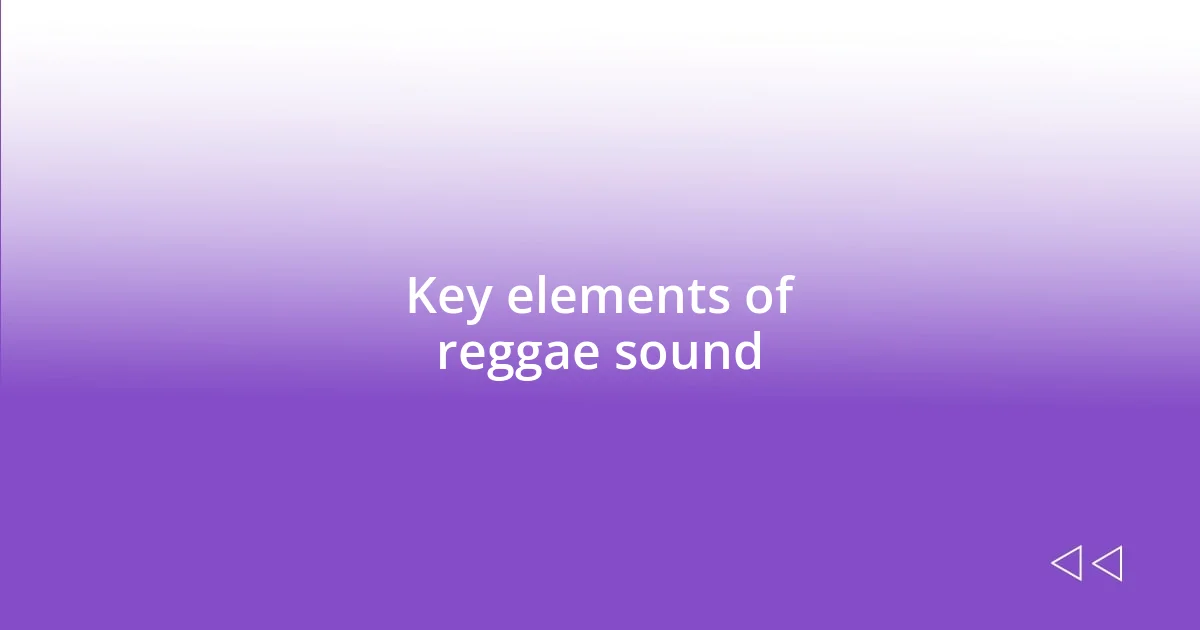
Key elements of reggae sound
Reggae’s sound is characterized by several distinctive elements, with rhythm taking center stage. The one-drop beat, where the bass drum is played on the third beat of the measure, creates a laid-back, yet infectious groove that I often find myself nodding to. It’s like the heartbeat of the music, and there’s a palpable energy that sweeps through the air when it plays. Have you ever felt your body move in response to a rhythm that just feels right? That’s exactly what reggae delivers.
Another essential component is the offbeat guitar strumming, often referred to as the “chop.” This technique adds a unique syncopation to the overall sound, and I cannot help but smile every time I hear it. I remember attending a live reggae concert, and seeing the guitarist effortlessly switch between chords, creating that unmistakable “skank” sound. It transformed the atmosphere, making the entire crowd sway in unity. Isn’t it fascinating how such a simple technique can evoke that much joy?
Finally, the bass lines in reggae are nothing short of legendary. They provide a deep, melodic foundation that supports the entire ensemble. I’ve often marveled at how the bass player can take command of a song with just a few notes, really grounding the composition while inviting listeners into a deeper emotional experience. The rich tones make you feel every note, pulling on your heartstrings in ways that are simply magical.
| Key Element | Description |
|---|---|
| Rhythm | Central to reggae, characterized by the one-drop beat that creates a laid-back groove. |
| Offbeat Guitar Strumming | Known as the “chop,” it adds unique syncopation and enhances the groove. |
| Bass Lines | Deep, melodic lines that provide a foundation, grounding the music and evoking strong emotions. |
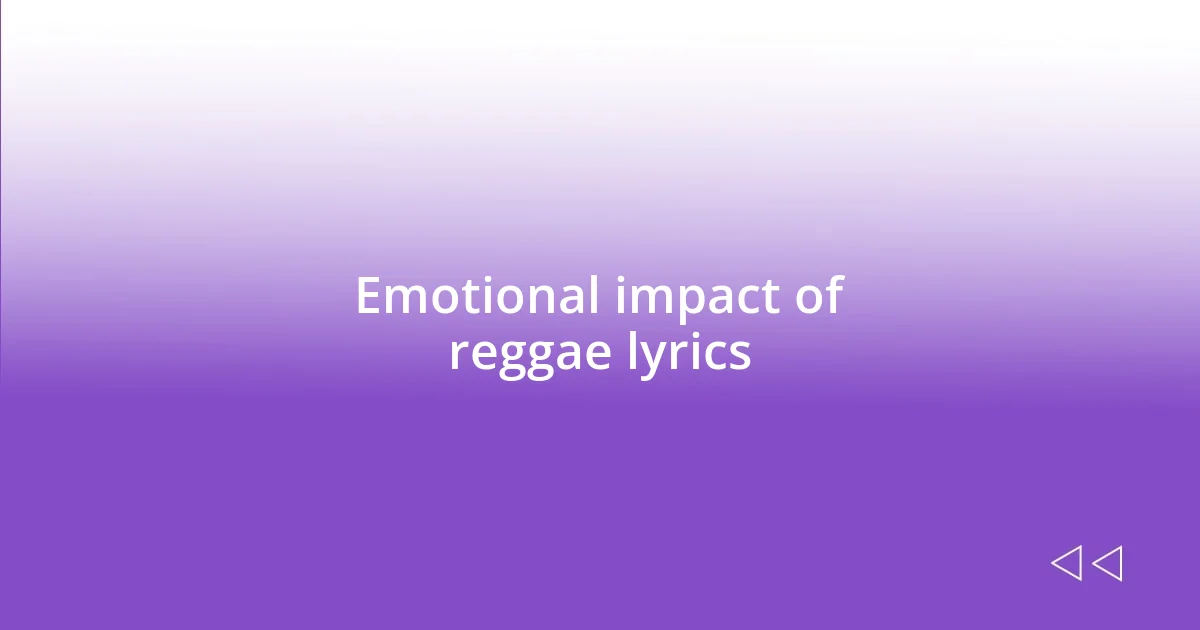
Emotional impact of reggae lyrics
When I dive into reggae lyrics, I often find them to be a mirror reflecting the complexities of life—love, loss, and social struggles. One moment, a song might envelop me in warmth with its message of hope, and the next, it pierces my heart with stories of pain and resilience. I remember listening to “Redemption Song” on a rainy afternoon, and the powerful call for freedom struck a chord within me. It reminded me that, in moments of despair, these lyrics serve not only as a source of comfort but also a rallying cry for change.
- Reggae lyrics often express themes of love and healing, promoting a sense of unity and belonging.
- Songs like “One Love” radiate hope and invite listeners to come together as one, transcending cultural barriers.
- The raw honesty in tracks that deal with social injustice resonates deeply, compelling listeners to engage in dialogue and reflection.
- I find lyrics that speak to personal experiences add a layer of authenticity, making the genre relatable to countless listeners like me.
- Ultimately, reggae lyrics create a profound emotional landscape that offers both solace and empowerment in the face of struggles.
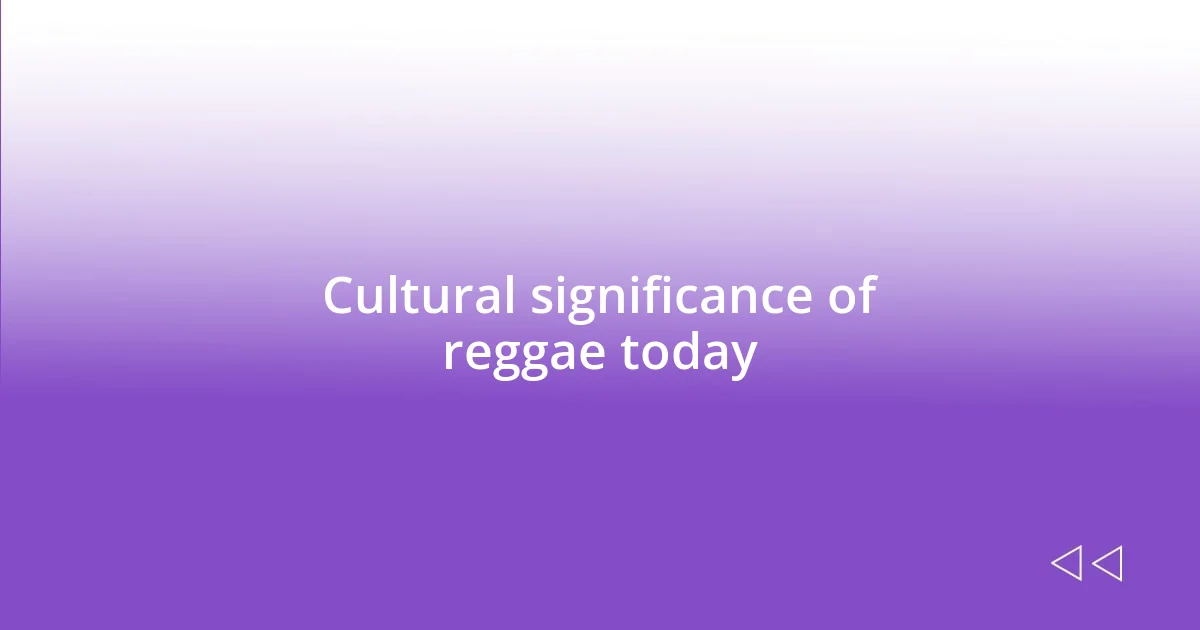
Cultural significance of reggae today
The cultural significance of reggae today cannot be overstated. In my experience, reggae functions as a universal language that speaks to issues of identity, freedom, and community. For instance, when I attended a local reggae festival, I was struck by the diverse crowd, all united by a shared love for the music and its powerful message of resistance against oppression. Doesn’t it amaze you how music can bring together different cultures and backgrounds, creating a sense of belonging?
Reggae artists today often continue to carry forward the genre’s tradition of social commentary. I find it inspiring how contemporary musicians weave modern themes like climate change and systemic racism into their lyrics, connecting the roots of reggae with pressing global issues. Just the other night, I stumbled upon a new track that featured a collaboration of Caribbean and African artists, and the lyrics moved me deeply. Isn’t it beautiful how they are honoring the past while simultaneously addressing the challenges we face today?
Moreover, reggae’s emphasis on wellness and positivity makes it a beacon of hope in our fast-paced world. I remember a time when I felt overwhelmed by life’s demands, and turning on a reggae playlist instantly lifted my spirits. Songs promoting love and unity have this magical ability to soothe the soul, don’t you think? In times of struggle, reggae remains a source of comfort and inspiration, reminding us all of our shared humanity and the power of resilience.
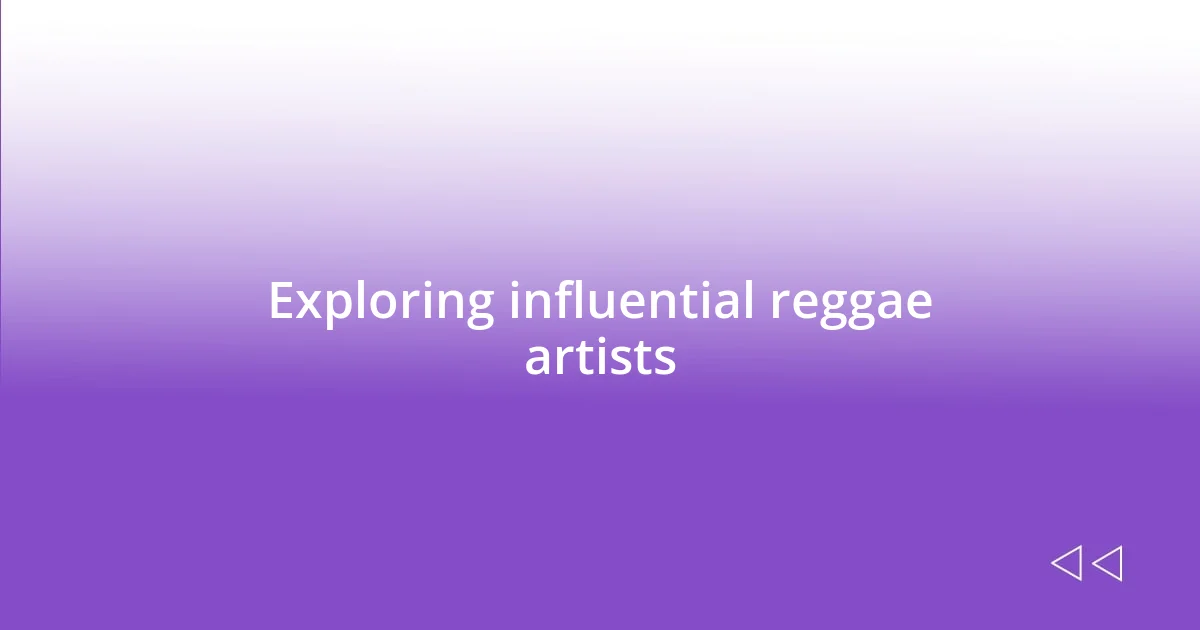
Exploring influential reggae artists
Bob Marley is perhaps the most iconic name in reggae, and for good reason. His music transcends time and culture, weaving messages of love, resistance, and empowerment into unforgettable melodies. I can still vividly recall the first time I heard “Three Little Birds”; its uplifting message felt like a gentle hug on a tough day, a reminder that everything would be alright. How often do songs stick with you like that, shaping your outlook just when you need it?
Then there’s Peter Tosh, a powerhouse of social justice in the reggae scene. His bold attitude and songs like “Equal Rights” don’t just entertain; they challenge listeners to think critically about fairness and human rights. I remember having a conversation with a friend about the depth of his lyrics, and it struck me how Tosh’s messages resonate in today’s world, reminding us that the fight for justice is ongoing. Doesn’t it feel essential to carry forward these conversations, especially in this era?
Of course, I can’t forget musicians like Burning Spear, who take us on a profound journey through history and heritage. Every time I listen to “Marcus Garvey,” I feel deeply connected to a legacy that passionately honors the past while igniting a fire for change. It’s fascinating how the rhythms of reggae can evoke such a wide array of emotions—how does music manage to touch the soul so profoundly? These artists and their powerful messages can inspire us to embrace our own stories, reminding us of the strength found in unity and resilience.

Reggae music’s global reach
Reggae music has a remarkable global reach that transcends borders and unites diverse audiences. I remember attending a reggae concert in a small European town where the crowd was a beautiful tapestry of cultures. It struck me how people from different backgrounds danced together, lost in the pulsating rhythms, proving that reggae’s message of peace and love resonates universally. How often can a genre of music create such connections?
In reality, reggae has found its way into the heart of various cultures around the world. From Japan to Brazil, local artists have embraced reggae, infusing their unique styles while keeping the essence of the genre alive. I came across a reggae-infused hip-hop collaboration from Brazil that captivated me instantly—it was fascinating to see how these artists intertwined their local dialects with classic reggae sounds. Isn’t it incredible how one genre can adapt and flourish in so many different contexts?
What fascinates me further is how reggae music can serve as a voice for social movements internationally. I recall reading about reggae festivals in places like South Africa, where the music not only entertains but also galvanizes communities around social justice issues. It’s a powerful reminder that reggae still stands as a catalyst for change, encouraging people to unite for a common cause. How often do we see music inspire collective action in our world?
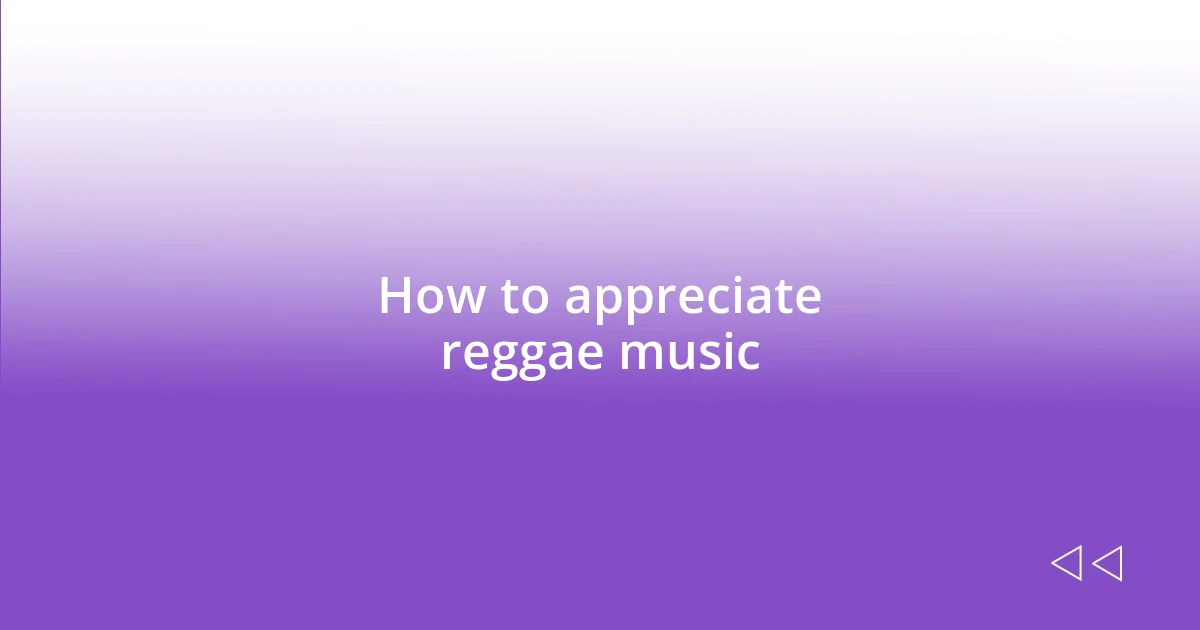
How to appreciate reggae music
To truly appreciate reggae music, I find it essential to immerse oneself in the rhythms and lyrical depth. The offbeat guitar and syncopated drums create a sound that is undeniably infectious. I remember sitting on a beach in Jamaica, listening to a local band play “One Love,” and feeling an overwhelming sense of joy and connection with everyone around me. Can you imagine how engaging it is to feel the music pulse through you, inviting both reflection and celebration?
Engaging with reggae also means delving into its rich historical and cultural contexts. Each song tells a story that often reflects the societal issues of its time. I had an eye-opening experience when I discovered the roots of reggae in Rastafarian culture—it not only deepened my respect for the music but also connected me to its spiritual essence. How can understanding the background of a genre enhance our emotional connection to it?
Lastly, sharing your experience with others can significantly enrich your appreciation of reggae music. I often recommend organizing a listening party, where friends can explore different artists and styles together. I vividly recall the laughter and conversations that flowed when we discussed our favorite tracks and their meanings. Doesn’t music have a unique ability to bring people together, bridging gaps and creating memorable moments?


